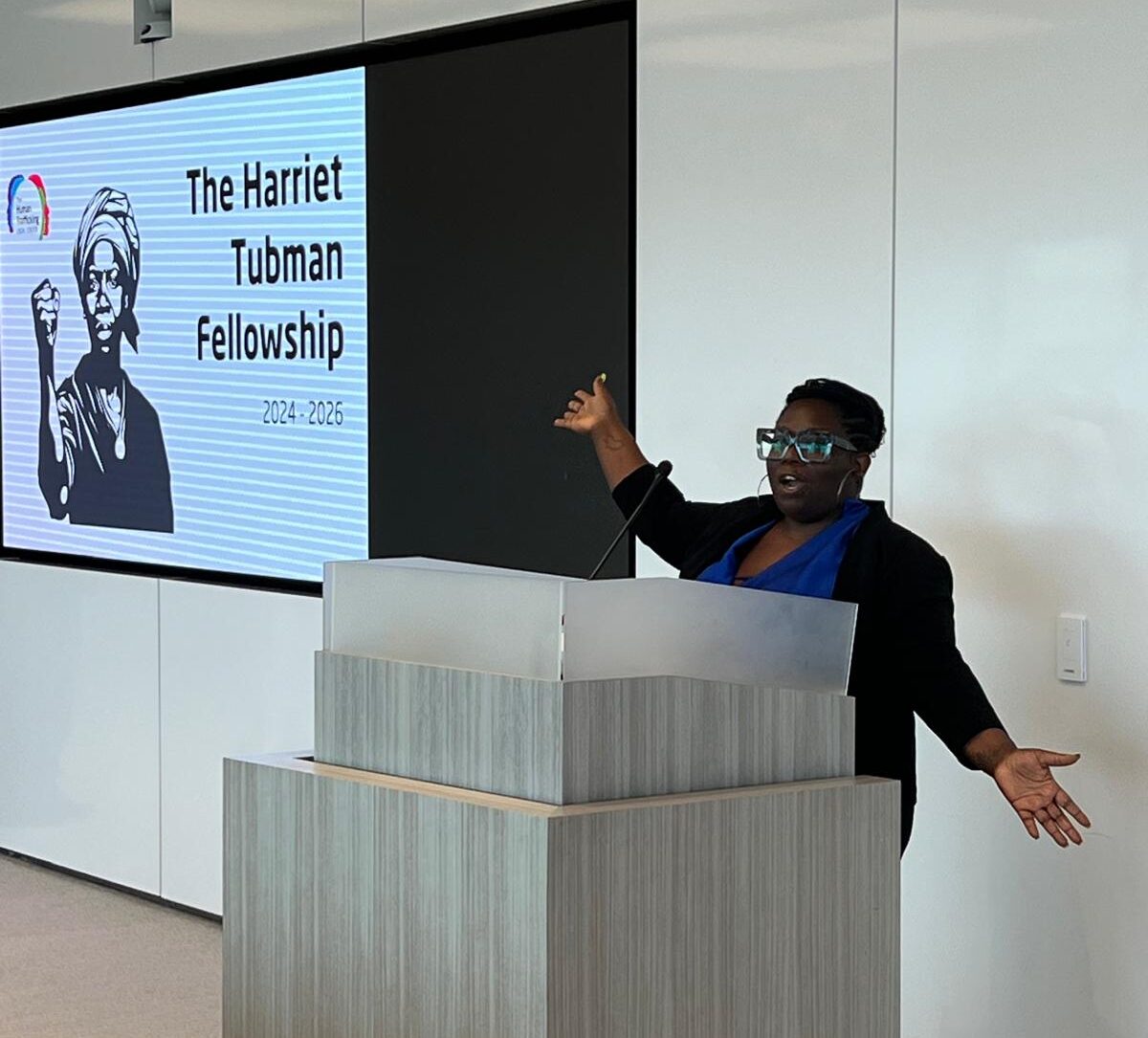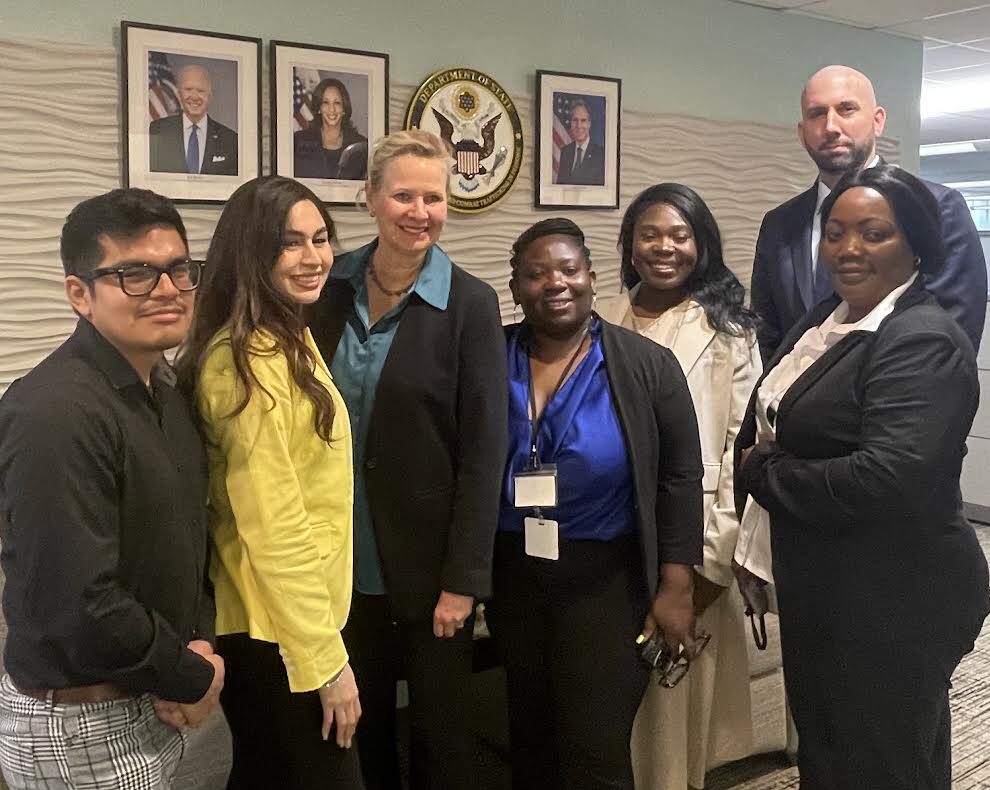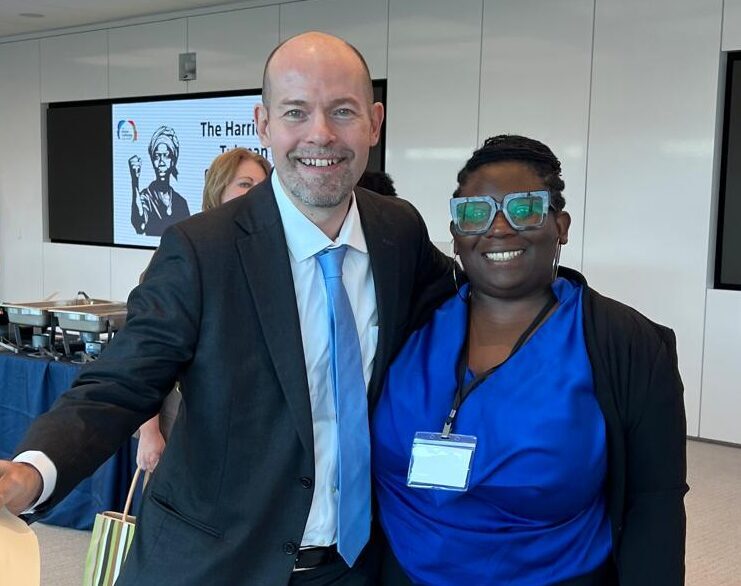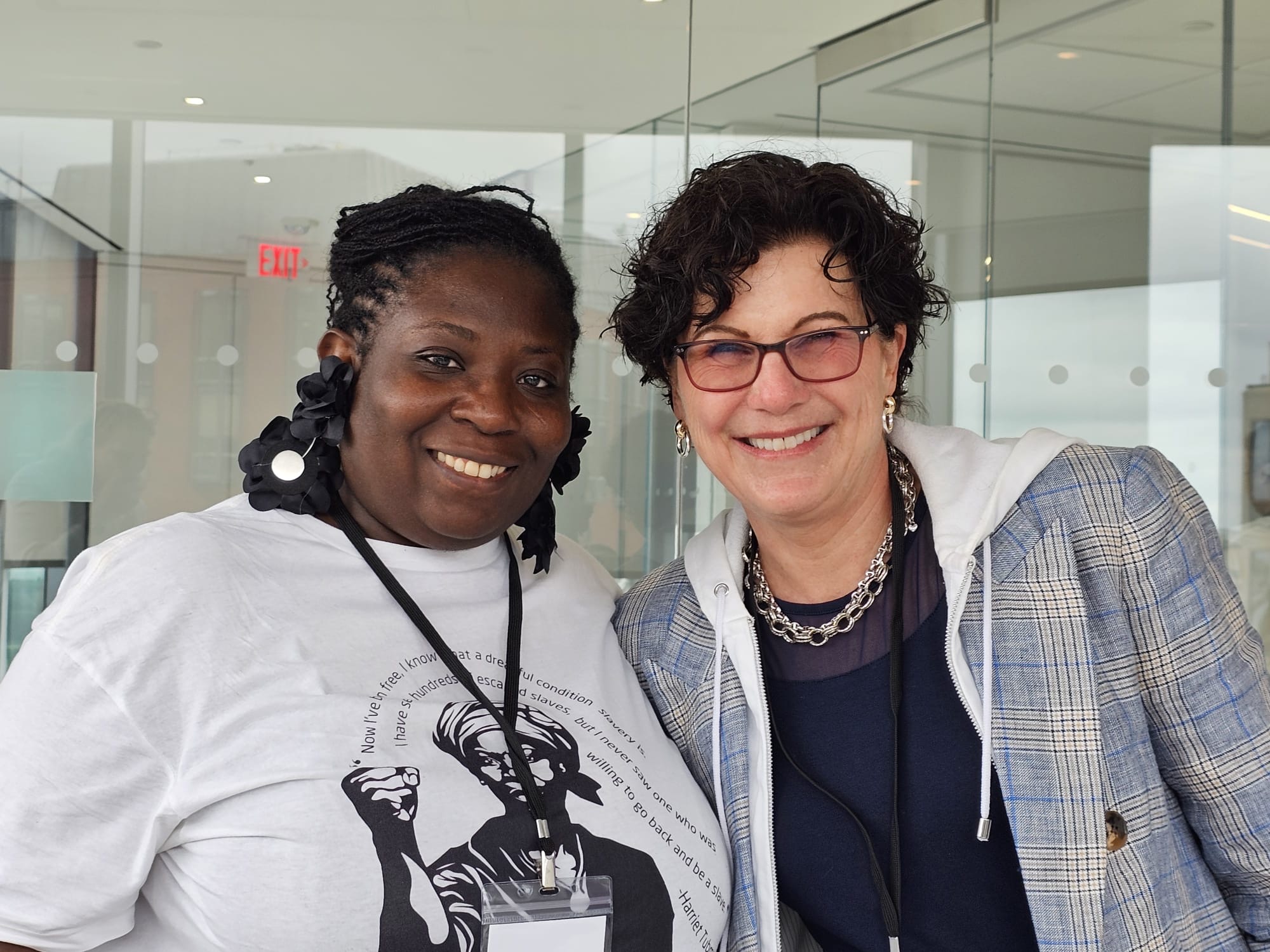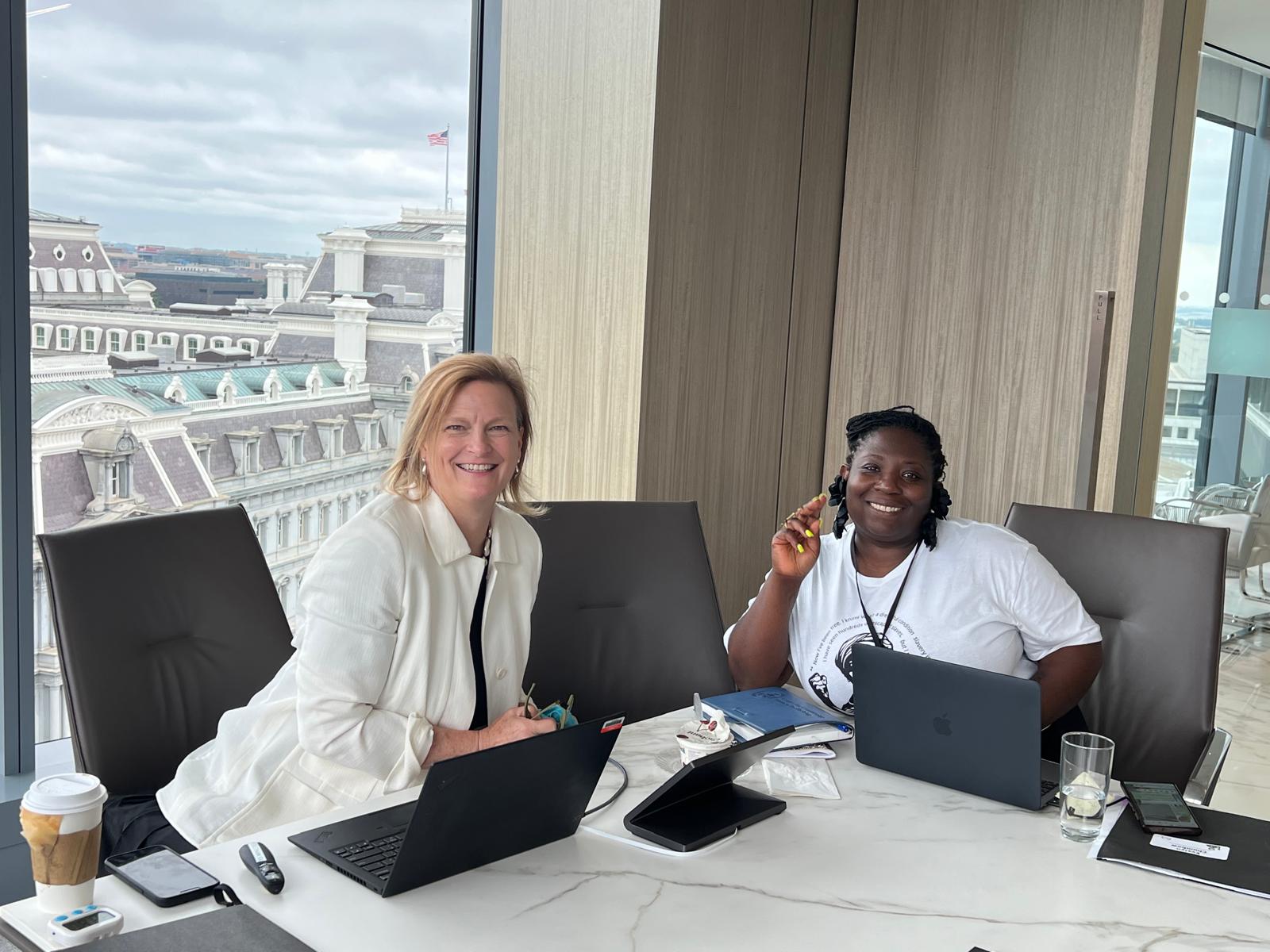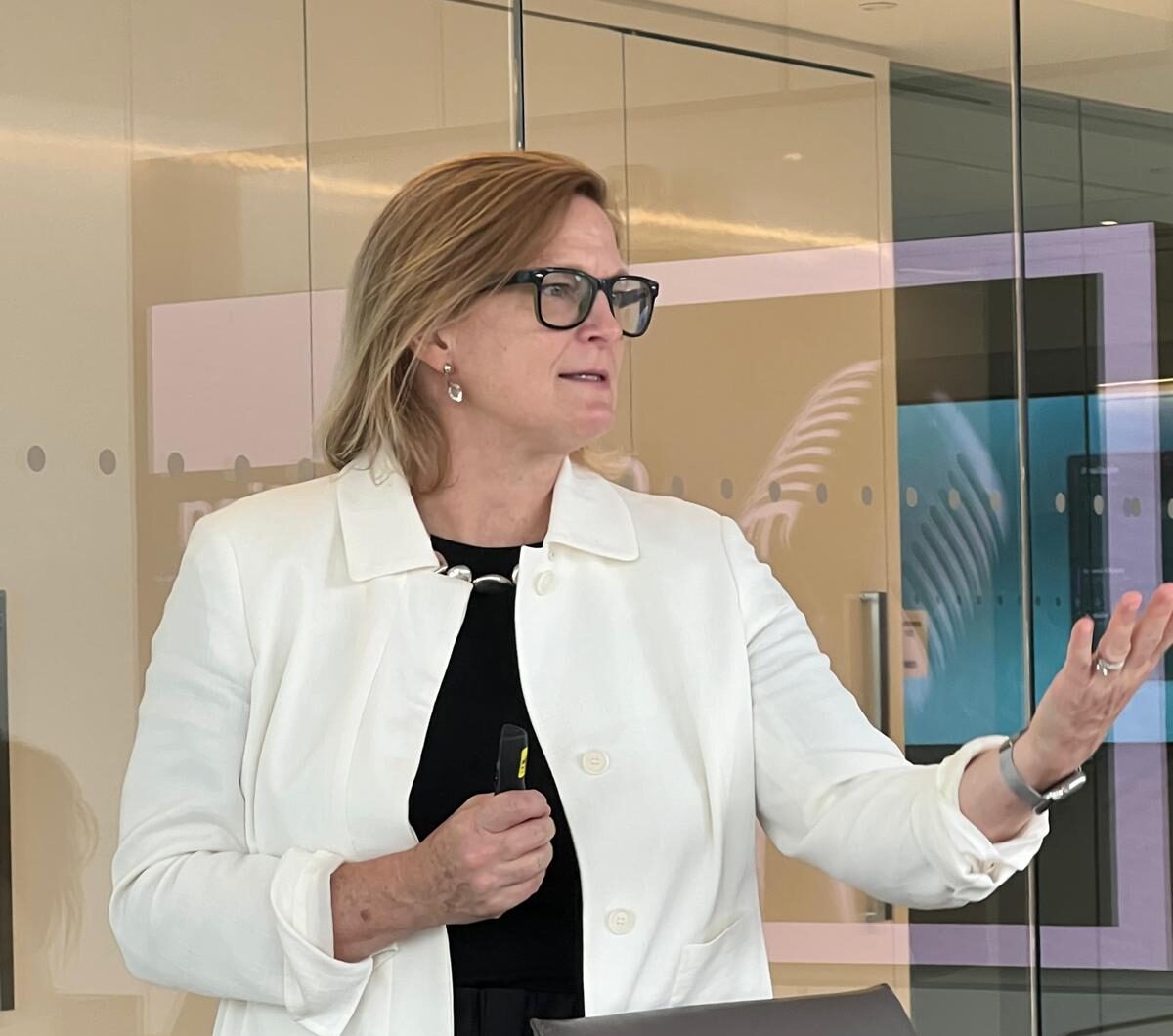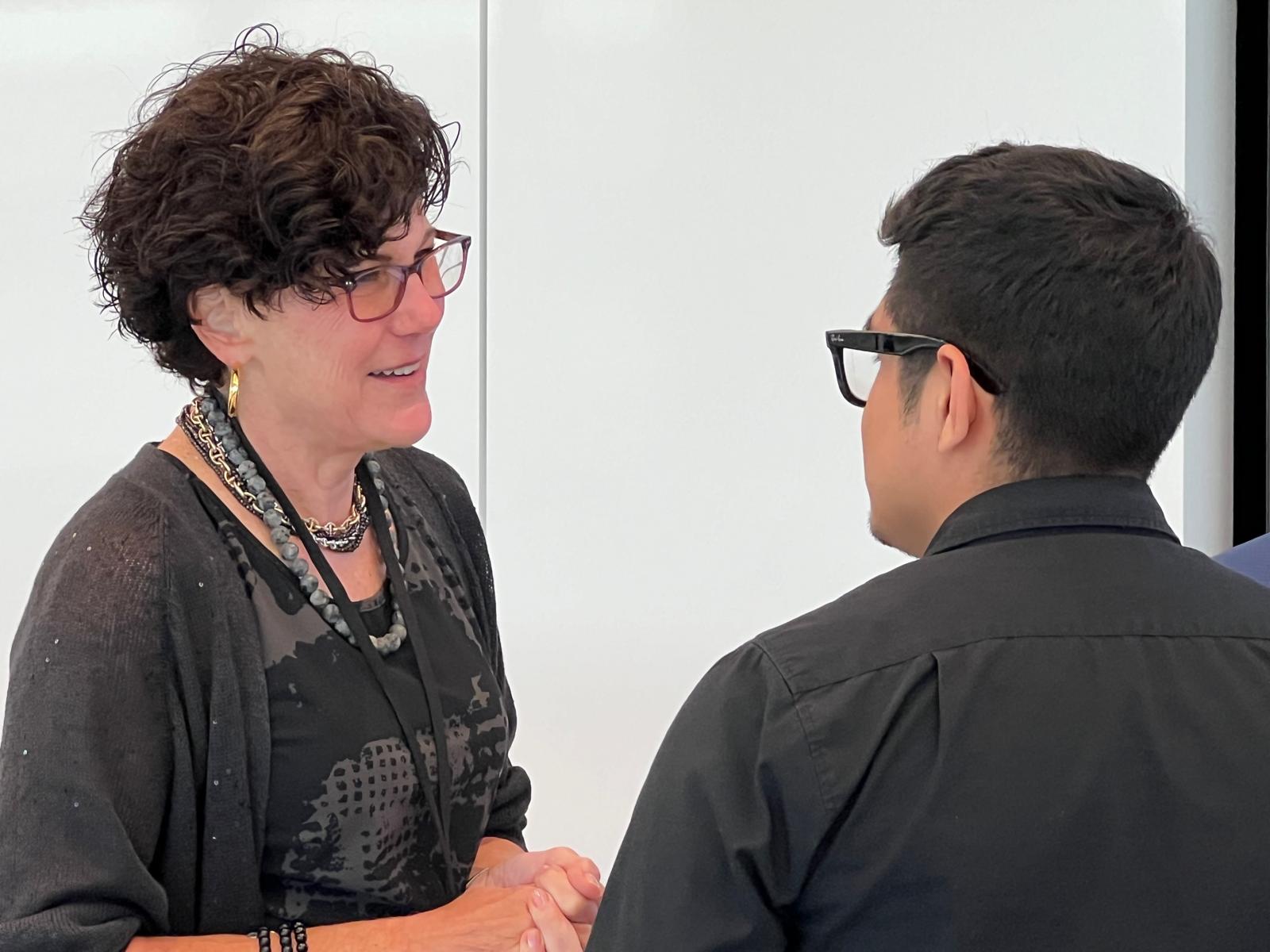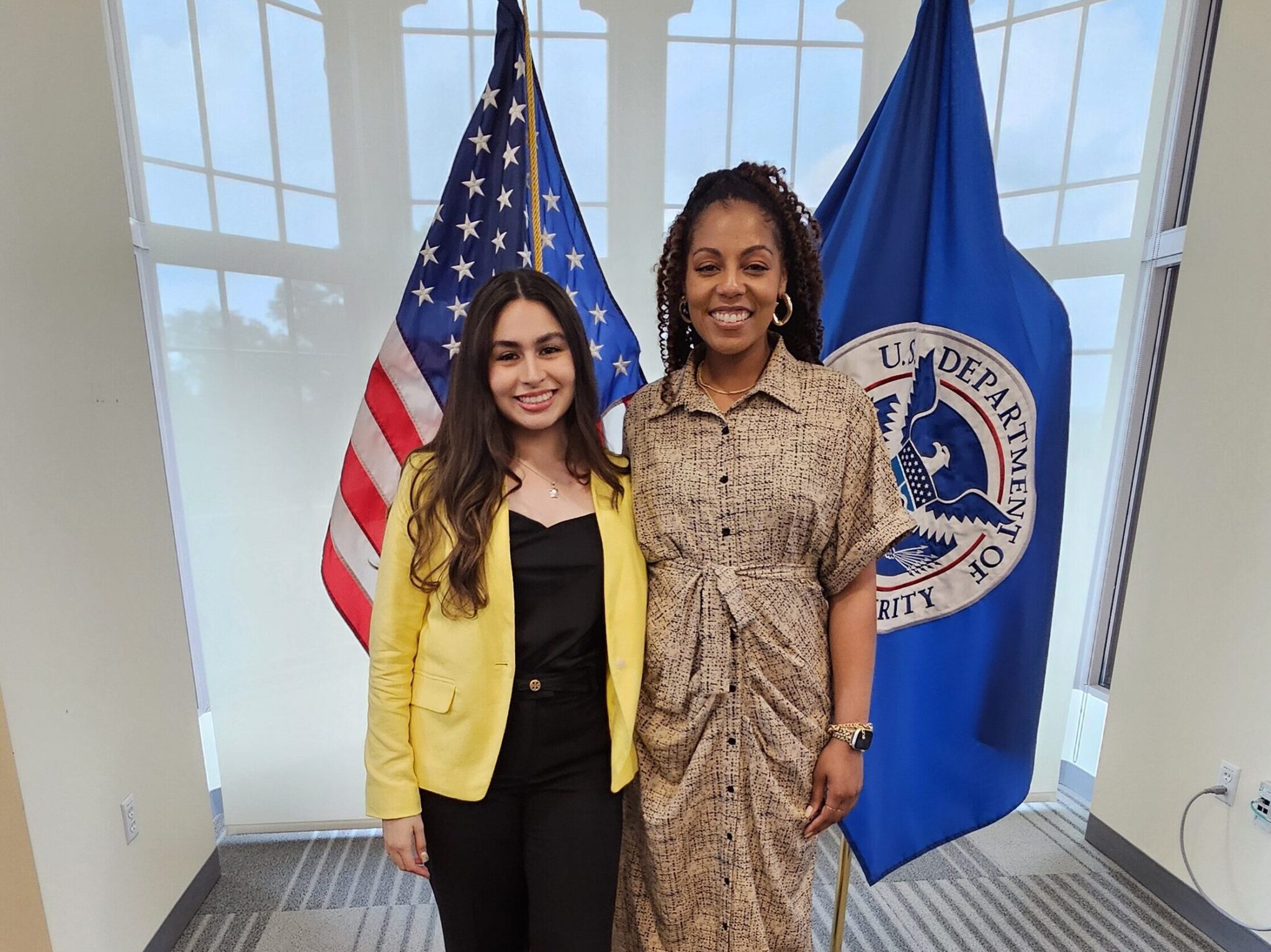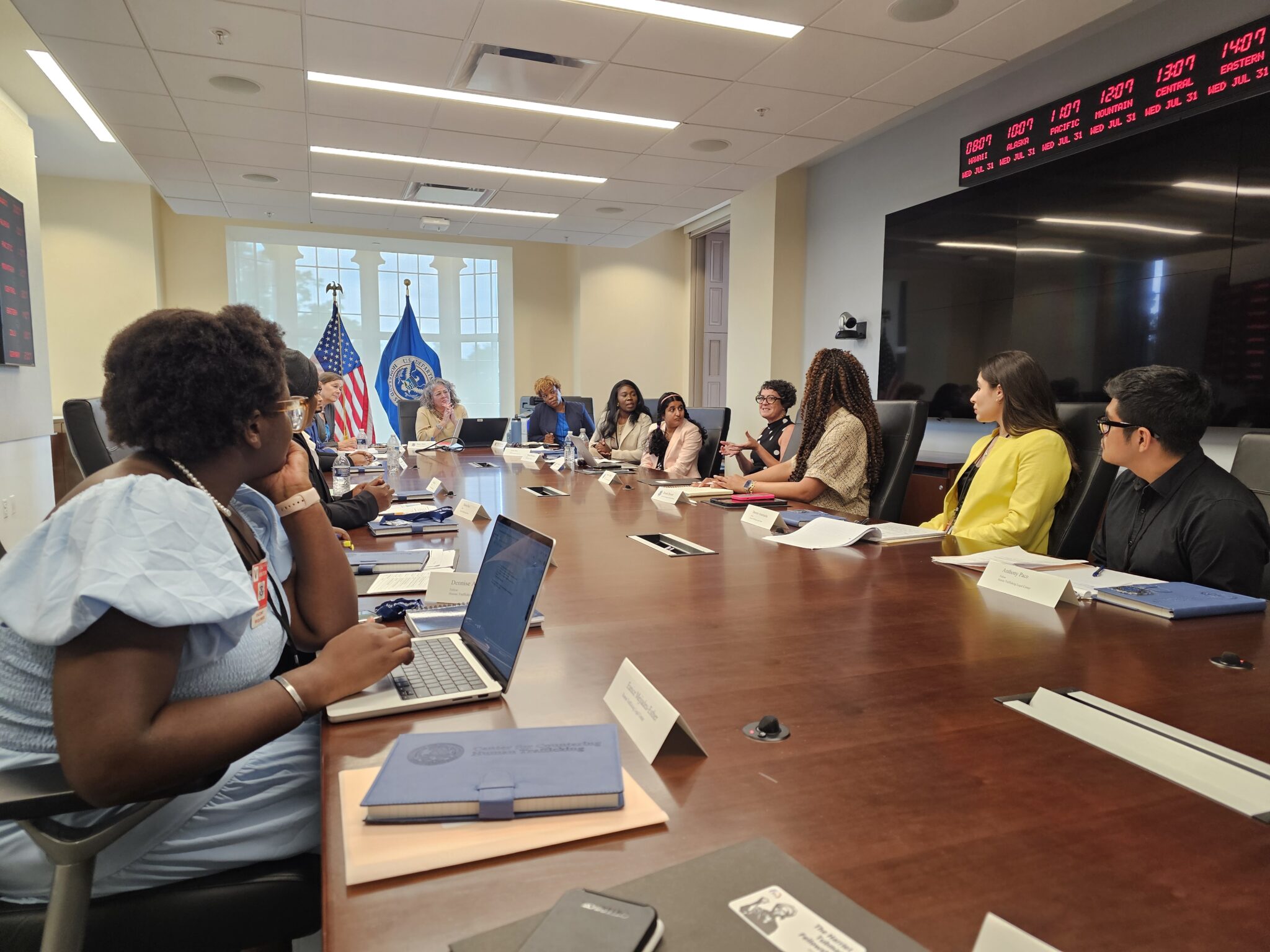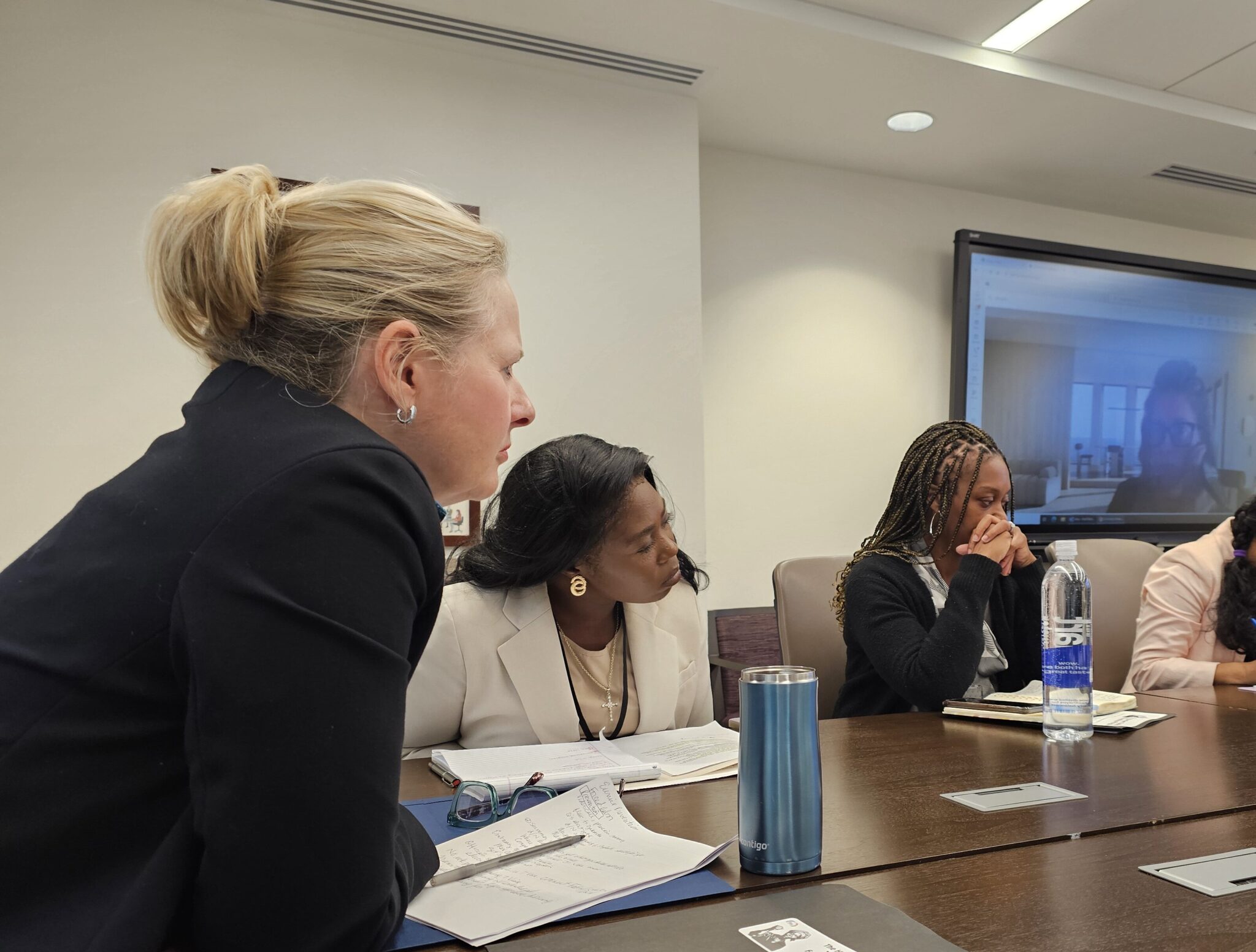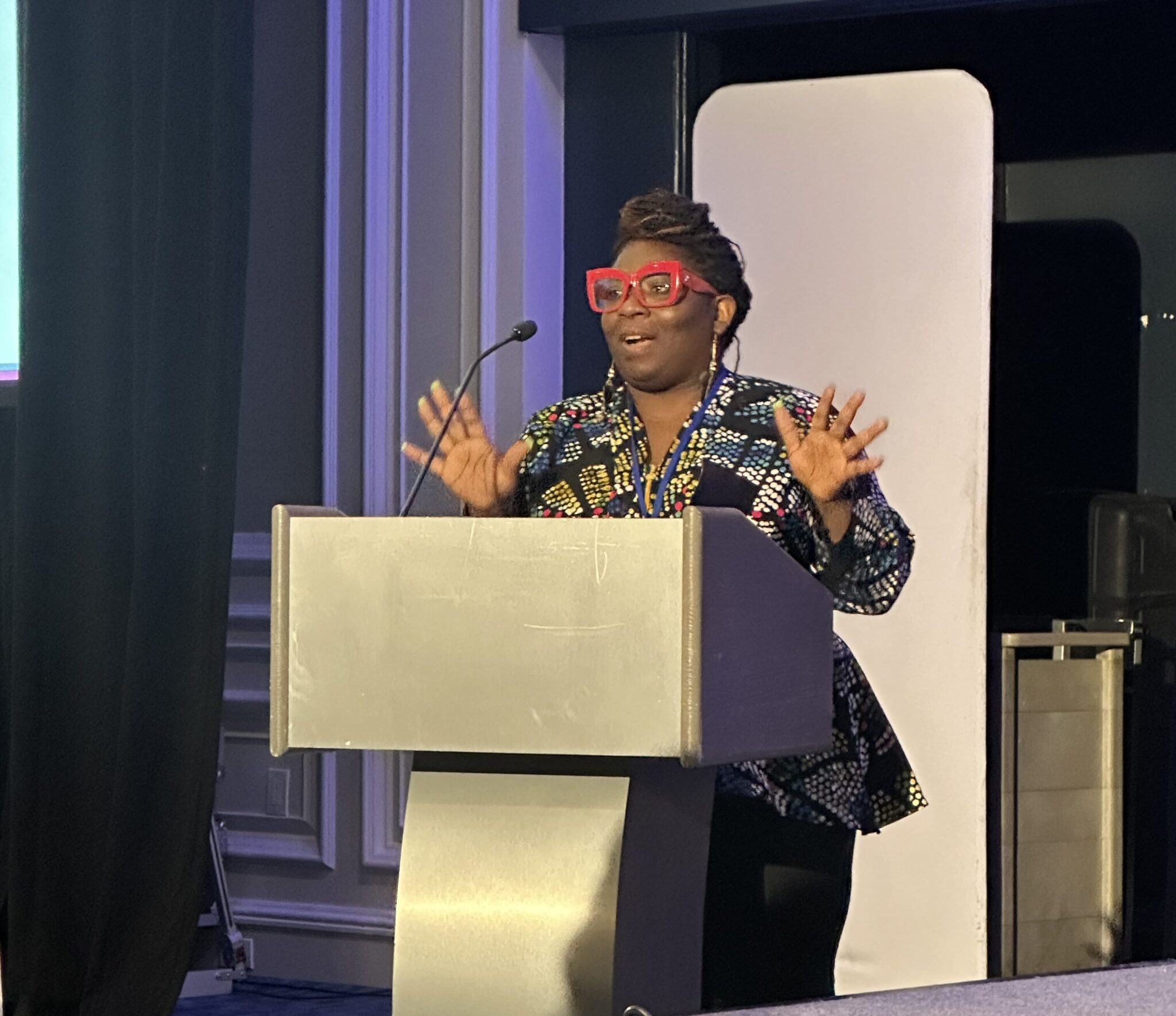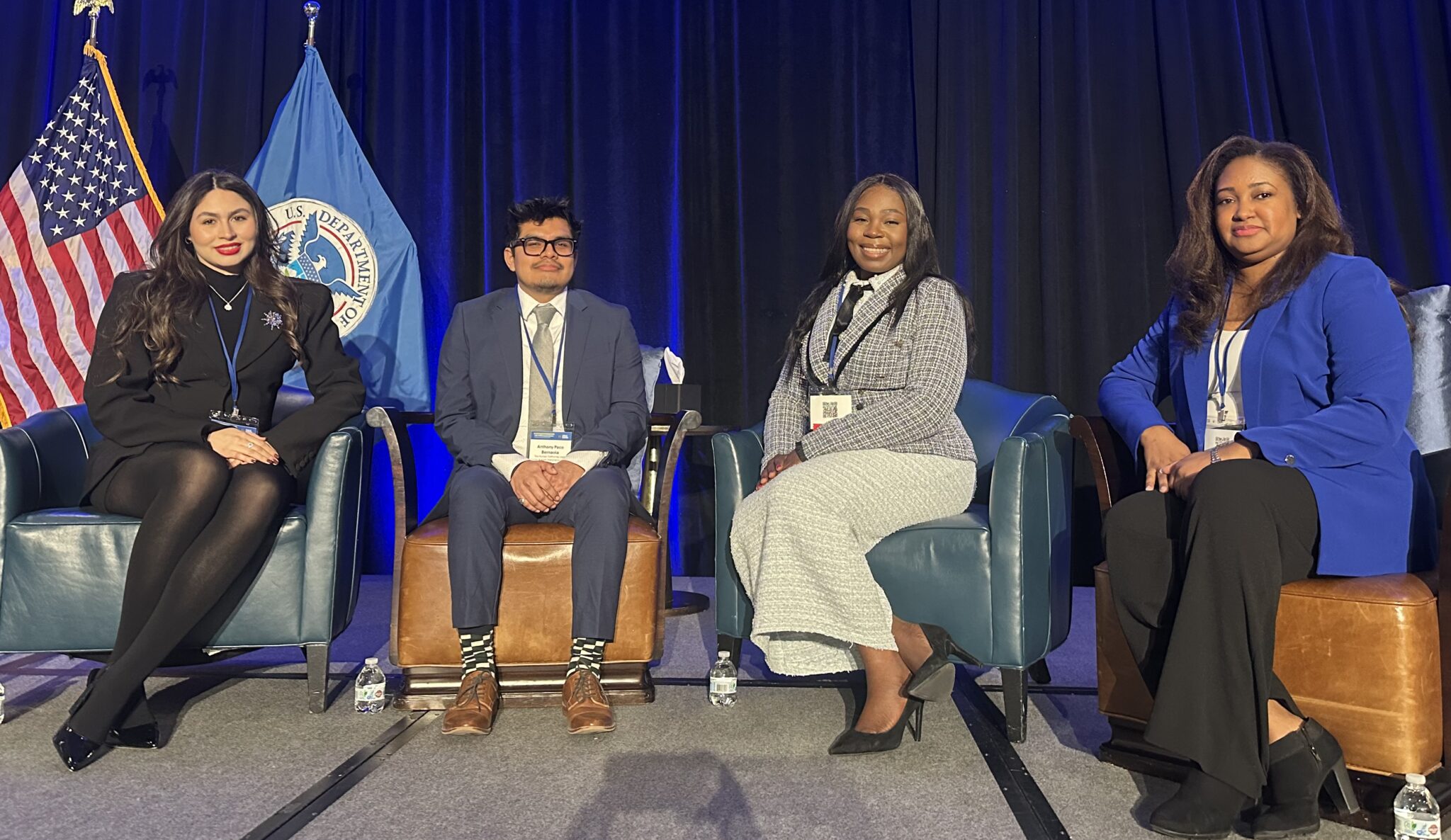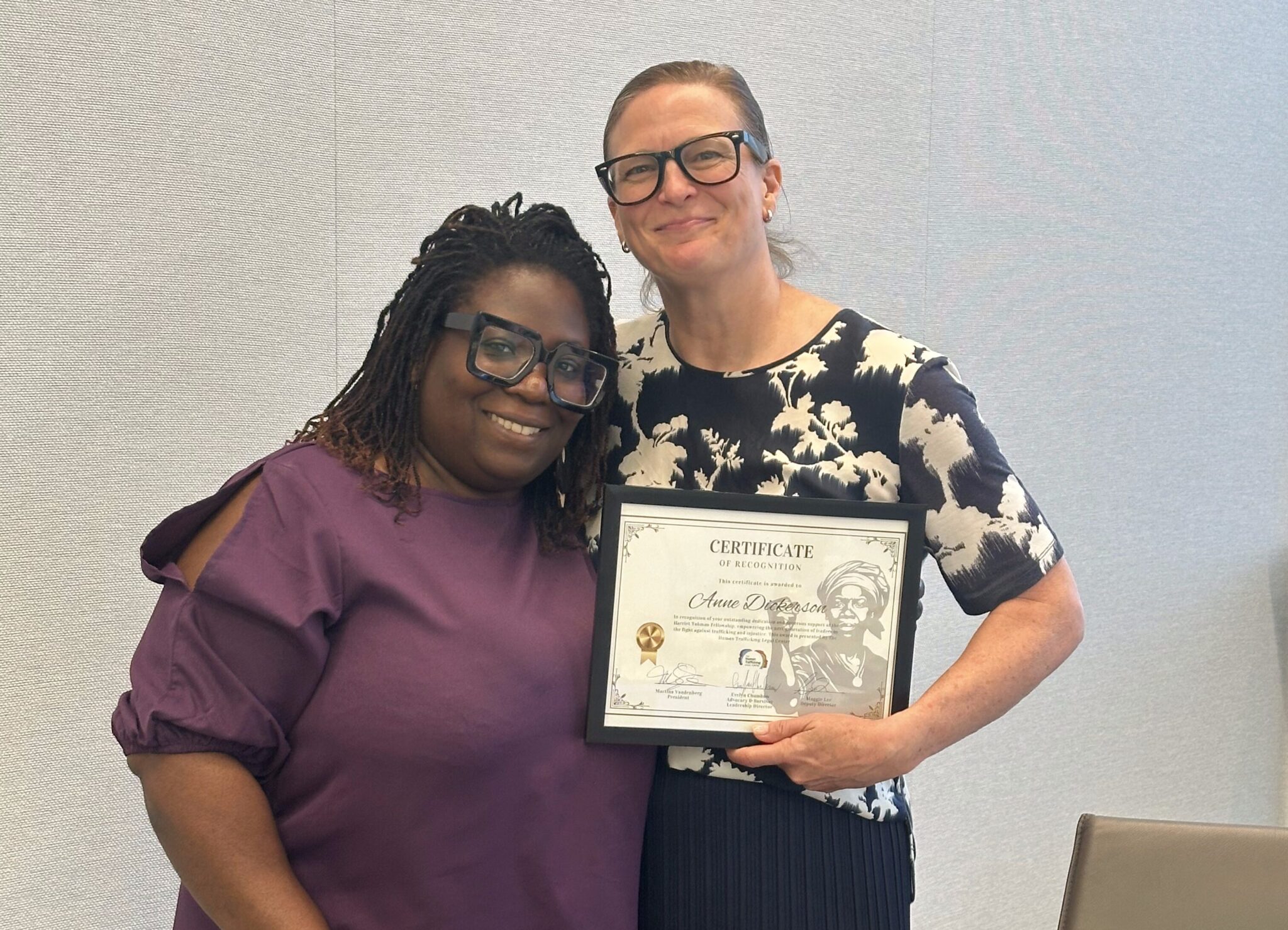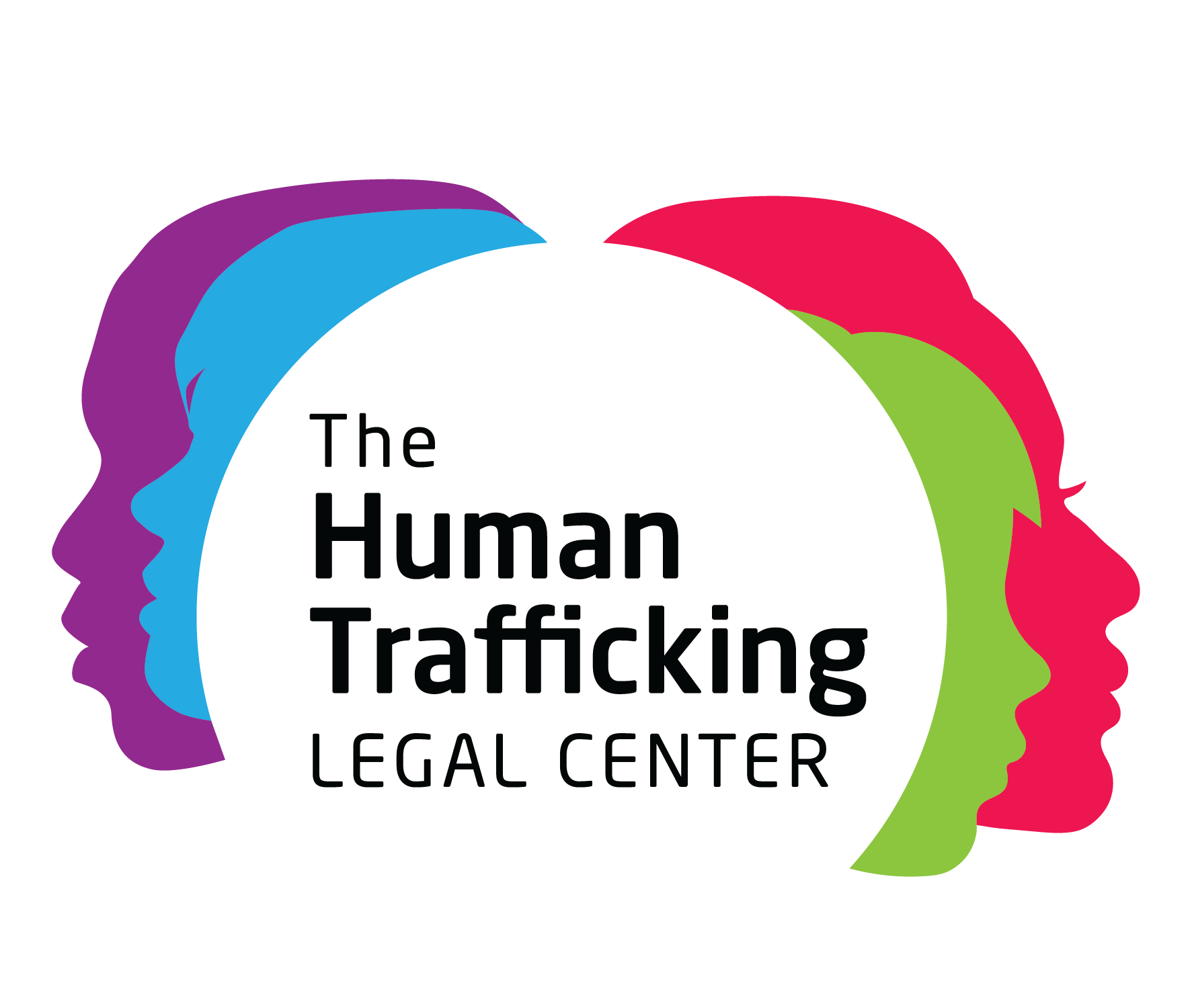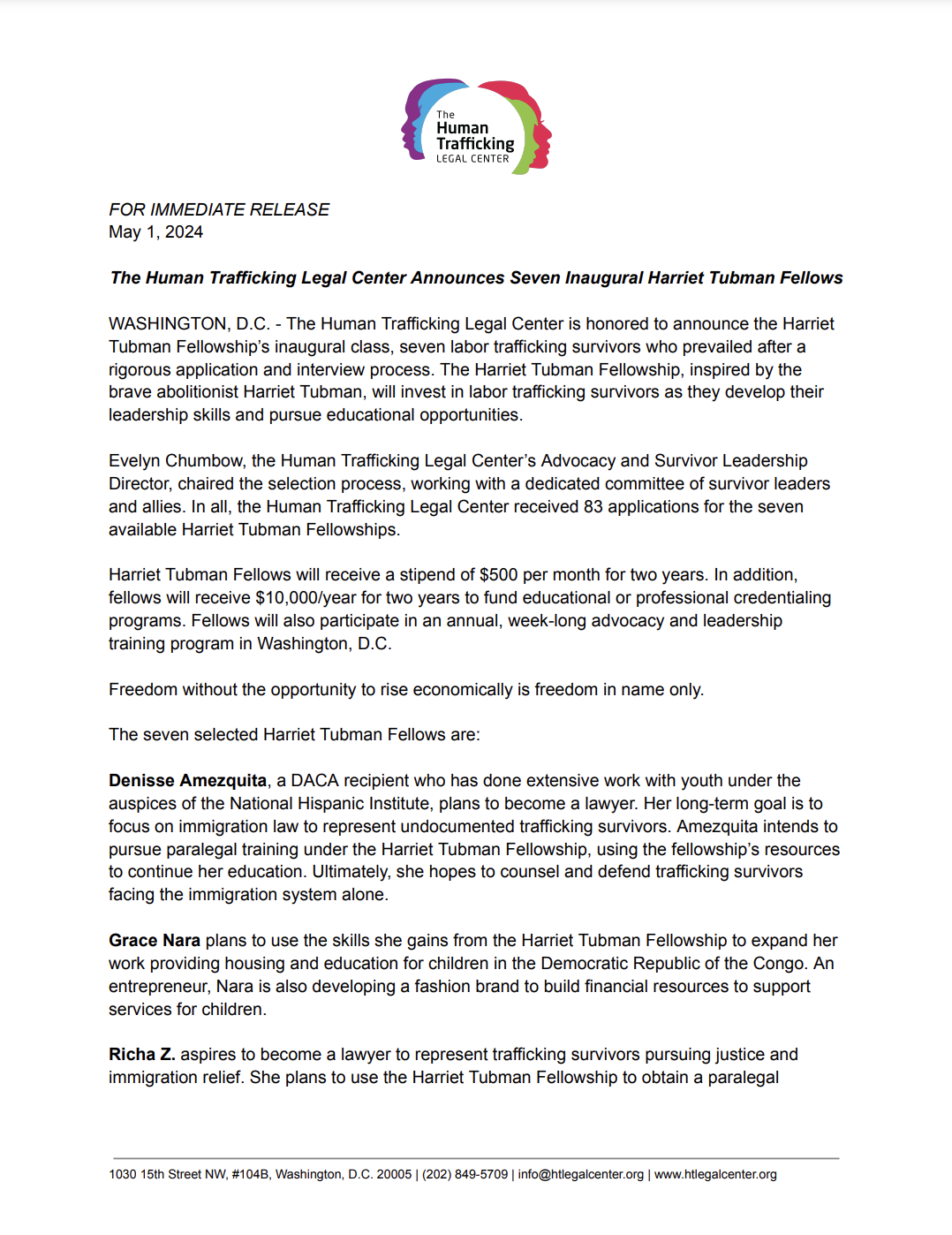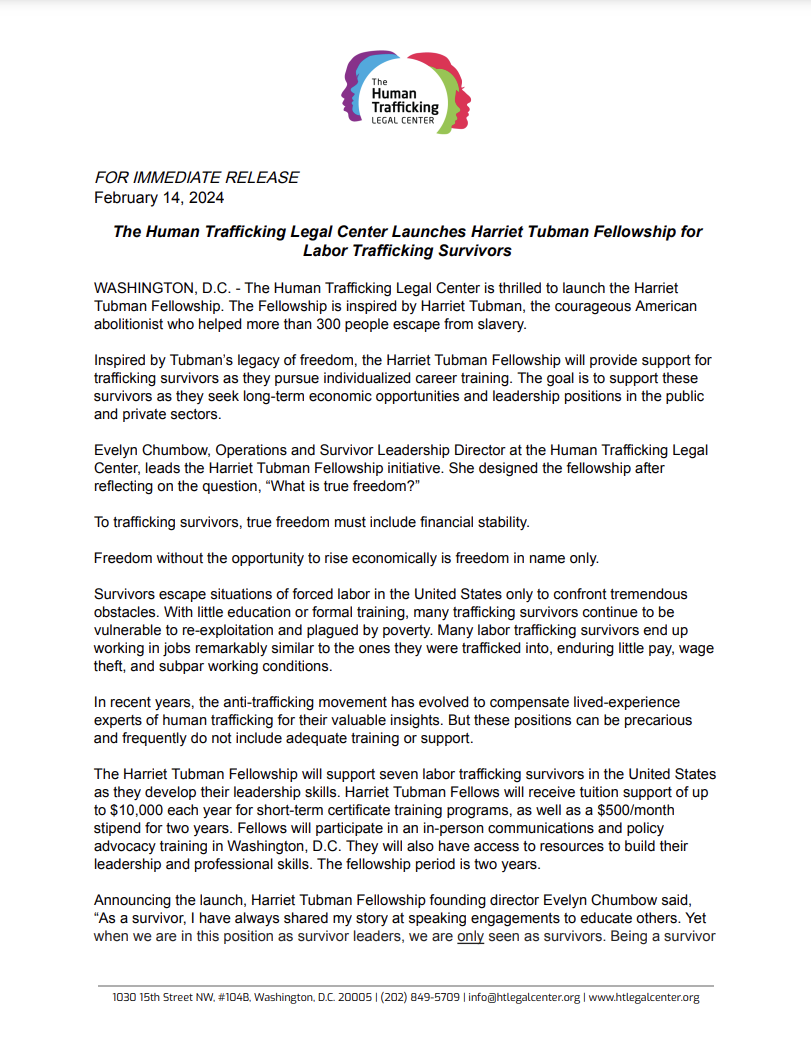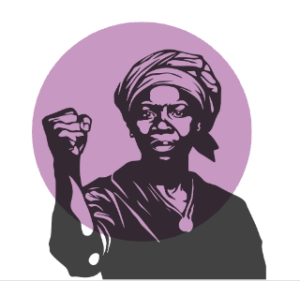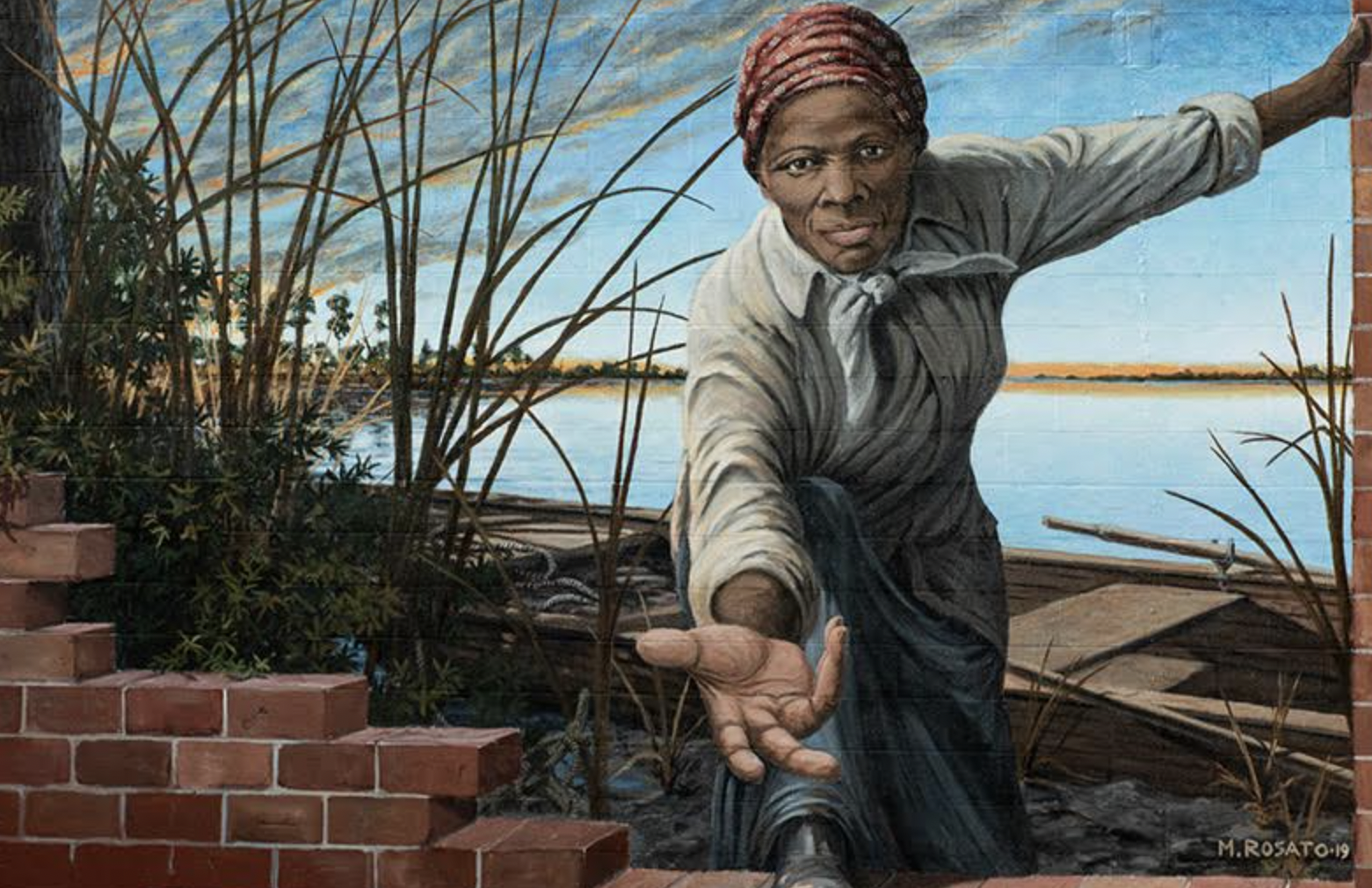
The Harriet Tubman Fellowship
The Harriet Tubman Fellowship for Labor Trafficking Survivors supports survivor-leaders and prepares them for management-level positions. The Fellowship has a key goal: to increase trafficking survivors’ power and influence by equipping them with the skills to take up leadership roles in the non-profit, private, and public sectors. The ultimate vision is for trafficking survivors to lead anti-trafficking (and other non-profit) organizations and to assume senior positions in the public sector.
Harriet Tubman Fellows will participate in an in-person communications and policy advocacy training in Washington, D.C. They will also have access to resources to build their leadership and professional skills. The fellowship period is two years. Each lived-experience survivor fellow will benefit from:
- A $10,000 tuition grant for formal training in the field of their choice
- A monthly $500 stipend
- In-person Communications and Policy Advocacy Training in Washington, D.C.
- Access to mentoring, coaching, and career development opportunities
The Harriet Tubman Fellowship invests in survivor leaders so they can attain financial stability and lead in their communities.
Congratulations to the inaugural class of Harriet Tubman Fellows:
The Human Trafficking Legal Center is honored to announce the Harriet Tubman Fellowship’s inaugural class, seven labor trafficking survivors who prevailed after a competitive application and interview process.

Denisse Amézquita Gamboa
Denisse Amezquita, a DACA recipient who has done extensive work with youth under the auspices of the National Hispanic Institute, plans to become a lawyer. Her long-term goal is to focus on immigration law to represent undocumented trafficking survivors. Amezquita intends to pursue paralegal training under the Harriet Tubman Fellowship, using the fellowship’s resources to continue her education. Ultimately, she hopes to counsel and defend trafficking survivors facing the immigration system alone.

Grace Muwawa
Grace Muwawa plans to use the skills she gains from the Harriet Tubman Fellowship to expand her work providing housing and education for children in the Democratic Republic of the Congo. An entrepreneur, Muwawa is also developing a fashion brand to build financial resources to support services for children.

Anthony Paco Bernaola
Anthony Paco currently serves as the program coordinator for the Asian Association of Utah, where he supports labor trafficking survivors seeking services. He plans to use the Harriet Tubman Fellowship to hone his leadership and management skills. His ultimate goal is to establish a shelter dedicated to supporting male human trafficking survivors.

Theresa Onya
Theresa ONYA is currently completing her Bachelor’s degree in nursing. She intends to use the Harriet Tubman Fellowship to develop her skills as a patient advocate. Her goal is to support trafficking-survivor patients with education and resources so that they can determine their next steps after escape.

Richa Z.
Richa Z. aspires to become a lawyer to represent trafficking survivors pursuing justice and immigration relief. She plans to use the Harriet Tubman Fellowship to obtain a paralegal certification, the first step in her legal education. She is eager to continue her studies, as this will break the chains of trauma and allow her to support fellow trafficking survivors in her community.

Naima M.
Naima M., a gifted teacher, is passionate about empowering labor trafficking survivors to assert their rights in the workplace. Naima currently teaches English to refugees from Afghanistan, with a focus on empowering women. She plans to use the Harriet Tubman Fellowship to build her leadership skills, while continuing to provide education and language support to immigrant survivor communities.

J. Samantha S.
Jameela S. Stewart intends to use the Harriet Tubman Fellowship to build her policy advocacy, leadership, and technical skills. Her ultimate goal is to pursue a career in cybersecurity, while using her technical capability to build a community forum for survivors. She describes herself as a servant leader, who uses her opportunities to support colleagues and fellow survivors.
The Harriet Tubman Fellowship Advocacy
